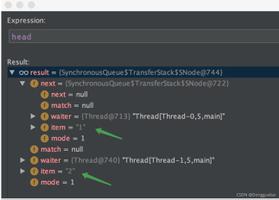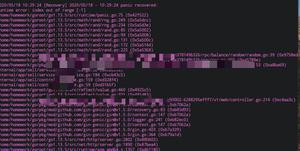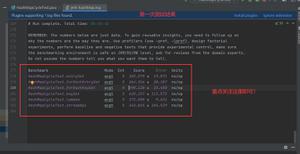java Math.pow

Math.pow
/*** Returns the value of the first argument raised to the power of the
* second argument. Special cases:
*
* <ul><li>If the second argument is positive or negative zero, then the
* result is 1.0.
* <li>If the second argument is 1.0, then the result is the same as the
* first argument.
* <li>If the second argument is NaN, then the result is NaN.
* <li>If the first argument is NaN and the second argument is nonzero,
* then the result is NaN.
*
* <li>If
* <ul>
* <li>the absolute value of the first argument is greater than 1
* and the second argument is positive infinity, or
* <li>the absolute value of the first argument is less than 1 and
* the second argument is negative infinity,
* </ul>
* then the result is positive infinity.
*
* <li>If
* <ul>
* <li>the absolute value of the first argument is greater than 1 and
* the second argument is negative infinity, or
* <li>the absolute value of the
* first argument is less than 1 and the second argument is positive
* infinity,
* </ul>
* then the result is positive zero.
*
* <li>If the absolute value of the first argument equals 1 and the
* second argument is infinite, then the result is NaN.
*
* <li>If
* <ul>
* <li>the first argument is positive zero and the second argument
* is greater than zero, or
* <li>the first argument is positive infinity and the second
* argument is less than zero,
* </ul>
* then the result is positive zero.
*
* <li>If
* <ul>
* <li>the first argument is positive zero and the second argument
* is less than zero, or
* <li>the first argument is positive infinity and the second
* argument is greater than zero,
* </ul>
* then the result is positive infinity.
*
* <li>If
* <ul>
* <li>the first argument is negative zero and the second argument
* is greater than zero but not a finite odd integer, or
* <li>the first argument is negative infinity and the second
* argument is less than zero but not a finite odd integer,
* </ul>
* then the result is positive zero.
*
* <li>If
* <ul>
* <li>the first argument is negative zero and the second argument
* is a positive finite odd integer, or
* <li>the first argument is negative infinity and the second
* argument is a negative finite odd integer,
* </ul>
* then the result is negative zero.
*
* <li>If
* <ul>
* <li>the first argument is negative zero and the second argument
* is less than zero but not a finite odd integer, or
* <li>the first argument is negative infinity and the second
* argument is greater than zero but not a finite odd integer,
* </ul>
* then the result is positive infinity.
*
* <li>If
* <ul>
* <li>the first argument is negative zero and the second argument
* is a negative finite odd integer, or
* <li>the first argument is negative infinity and the second
* argument is a positive finite odd integer,
* </ul>
* then the result is negative infinity.
*
* <li>If the first argument is finite and less than zero
* <ul>
* <li> if the second argument is a finite even integer, the
* result is equal to the result of raising the absolute value of
* the first argument to the power of the second argument
*
* <li>if the second argument is a finite odd integer, the result
* is equal to the negative of the result of raising the absolute
* value of the first argument to the power of the second
* argument
*
* <li>if the second argument is finite and not an integer, then
* the result is NaN.
* </ul>
*
* <li>If both arguments are integers, then the result is exactly equal
* to the mathematical result of raising the first argument to the power
* of the second argument if that result can in fact be represented
* exactly as a {@code double} value.</ul>
*
* <p>(In the foregoing descriptions, a floating-point value is
* considered to be an integer if and only if it is finite and a
* fixed point of the method {@link #ceil ceil} or,
* equivalently, a fixed point of the method {@link #floor
* floor}. A value is a fixed point of a one-argument
* method if and only if the result of applying the method to the
* value is equal to the value.)
*
* <p>The computed result must be within 1 ulp of the exact result.
* Results must be semi-monotonic.
*
* @param a the base.
* @param b the exponent.
* @return the value {@code a}<sup>{@code b}</sup>.
*/
public static double pow(double a, double b) {
return StrictMath.pow(a, b); // default impl. delegates to StrictMath
}
#################################
以上是 java Math.pow 的全部内容, 来源链接: utcz.com/z/393098.html









